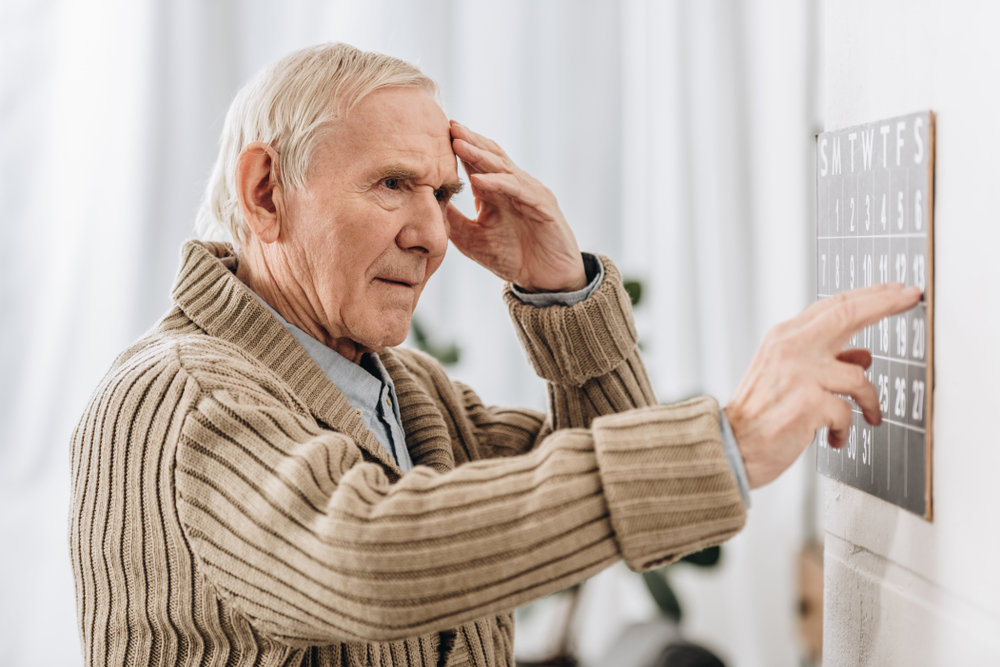Short Term Memory Loss in Elderly Adults
Category:

While there are many wonderful things about aging – you get discounts at the grocery store, you don’t have to wake up to an alarm clock, no one judges you when you can’t work a printer – there are some downsides. Short term memory loss is one of those downsides.
Short term memory loss is a normal part of aging. For example, you may have difficulty remembering someone’s name, but it comes to you later in the day. You may discover you need to make lists more often than you did before to remember appointments or tasks. You might put down your cell phone and forget where you put it. All of these relatively minor inconveniences are normal and no cause for alarm. It is only when memory issues begin to disrupt your normal, day-to-day life that you need to be concerned.
Causes of Short Term Memory Loss in Seniors
There are many causes of short term memory loss in the elderly. Some of those causes are serious and not reversible, like Alzheimer’s Disease. The Mayo Clinic provides some possible causes of short term memory loss that can be fixed or helped. Some of those causes include:
-
Medications – some medications or combinations of medications can cause short term memory loss or confusion.
-
Minor head injury – even if you don’t lose consciousness, a minor head injury can cause some memory loss.
-
Emotional Disorders – stress, anxiety, or depression can cause forgetfulness or confusion.
-
Alcoholism – chronic drinking can cause mental impairment.
-
Vitamin B-12 Deficiency – Vitamin B-12 helps maintain healthy red blood cells and nerve cells. It is a common deficiency in the elderly.
-
Hypothyroidism – an underactive thyroid gland can cause forgetfulness.
-
Brain disease – a brain tumor or other disease can cause forgetfulness or other mental impairment.
-
High Blood Pressure
Generally, all the issues listed above are treatable, and treating the issue can help solve short term memory loss. Additionally, if you experience sudden onset short term memory loss, it is likely due to one of the aforementioned issues. Memory loss is typically gradual, and if it occurs suddenly, it is almost certainly not a sign of Alzheimer’s Disease or dementia. It could be an early warning sign of a stroke, so it should be taken seriously.
Download a Free Guide to Home Care
How to Improve Short Term Memory Loss in the Elderly
Many of the ways to improve short term memory are just ways to stay healthy overall. Exercise gets your blood flowing to all parts of the body, including the brain, so even light physical activity like walking can improve memory. Getting enough sleep helps keep the brain healthy – and believe it or not, this includes napping! Grabbing a nap in the afternoon gives your brain a chance to rest and recharge and improve memory. Games are also great for memory, whether they are actual “brain games” like trivia (read more about trivia for seniors here) or just card or board games. Reading and other stress-relieving activities can improve memory. Finally, you can learn a new skill. Teaching your brain something new will keep it active and help improve memory.
It is important to reiterate that short-term memory issues in the elderly are a natural part of aging and not a reason to panic about dementia. If you are concerned about your memory, or the memory of a loved one, talk to your doctor. They can help you determine if you need to worry and can also diagnose the cause of the memory difficulty. It could be one of those easily solved issues. Technology is amazing, and there are even medications you can take to help improve memory, with which your doctor can help.
Subscribe
Date: 2021-02-16
Category:


